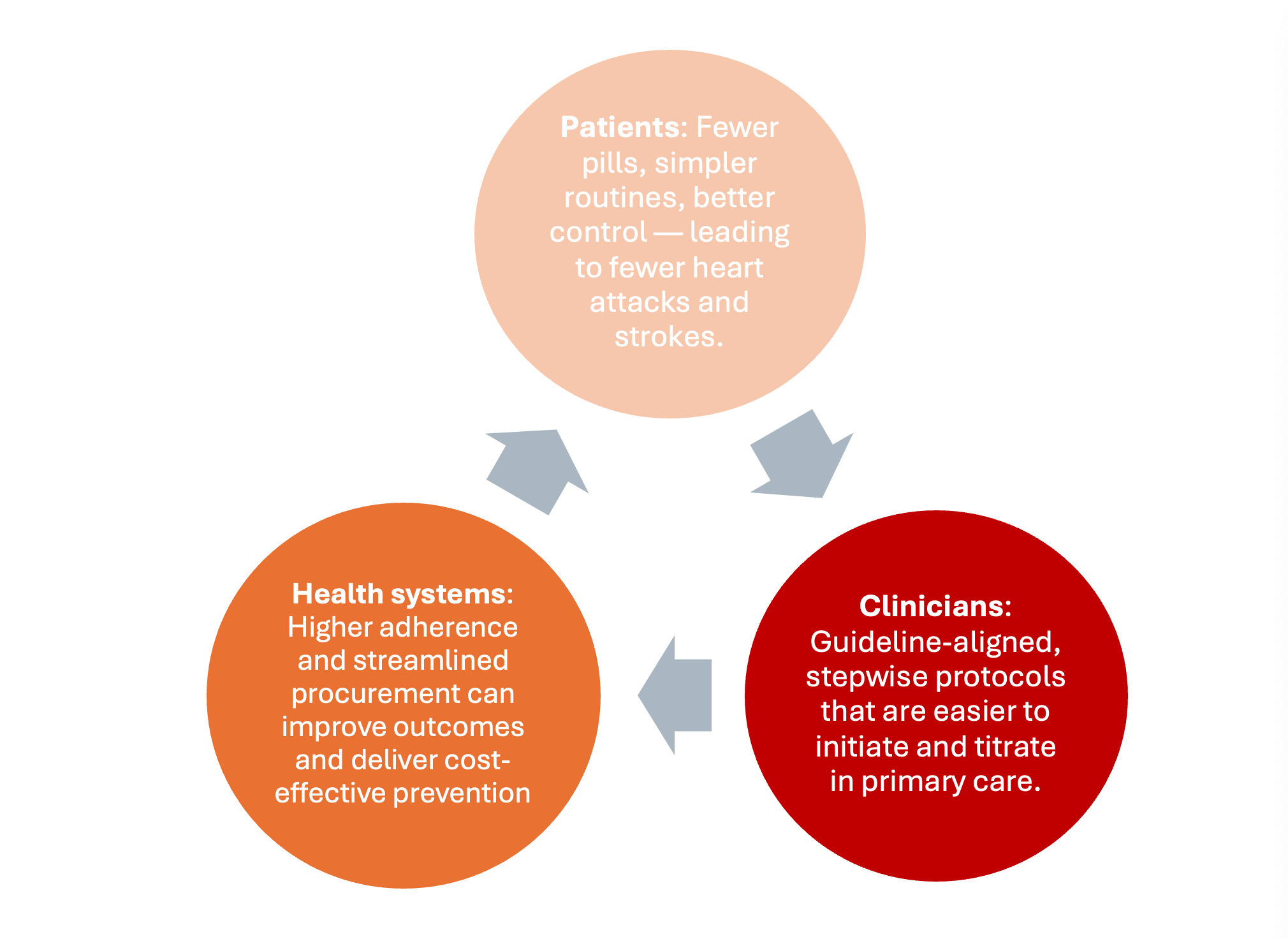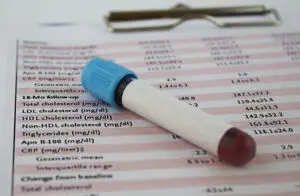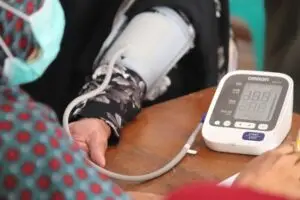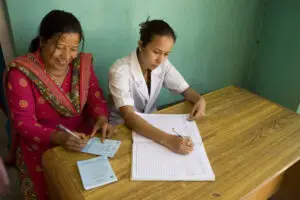Return to CVD Roadmaps Home
The WHF Roadmap on Single-Pill Combination (SPC) highlights key roadblocks to their wider use and sets out practical solutions to overcome barriers in availability, affordability, and adoption. By scaling up SPCs, countries can improve cardiovascular health and help achieve the Sustainable Development Goal of a 30% reduction in premature mortality from non-communicable diseases, including CVD, by 2030.
SPC therapies combine proven cardiovascular medicines into a single tablet to simplify treatment, improve adherence, and significantly reduce heart attacks, strokes, and deaths. With cardiovascular disease causing more than 20 million deaths each year—mostly in low- and middle-income countries – SPCs offer a practical, cost-effective way to strengthen prevention and long-term care.
Why SPCs now
- CVD is #1 worldwide. Over 20 million people die each year; most deaths occur in low- and middle-income countries.
- Pill burden hurts adherence. Multiple daily meds make long-term prevention and secondary care hard to sustain; SPCs reduce that burden.
- Global momentum. Cardiovascular SPCs were added to the WHO Essential Medicines List in 2023, accelerating availability, procurement, and clinical uptake.
What are SPCs?
A single-pill combination contains more than one active ingredient in one tablet (often called a fixed-dose combination (FDC) or “polypill”). Modern SPCs allow flexible dosing across components and are used for primary and secondary prevention of CVD.
The evidence at a glance
- Fewer events, better survival. In primary prevention, SPC strategies show a 38% reduction in the composite of CV death, MI, stroke, or revascularization, and 11% lower all-cause mortality vs. usual care/placebo. In secondary prevention, SPCs reduce composite MACE by 24% vs. individual-drug regimens.
- Risk factors improve. Trials demonstrate meaningful reductions in systolic blood pressure and LDL-cholesterol.
- Adherence improves; value is strong. SPC users adhere better than those on multiple separate pills; emerging analyses indicate cost-effectiveness across income settings.
Benefits of SPCs
Common barriers to SPCs — and how to solve them:
- Availability: Limited manufacturing and complex approvals → incentivize production, enable tech transfer, and harmonize regulation.
- Affordability: Higher unit prices and low volumes → pooled procurement; add SPCs to national EMLs & insurance benefits.
- Adoption: Inconsistent guidelines, prescriber inertia, low awareness → update protocols, educate providers, and co-design local rollouts.













